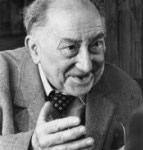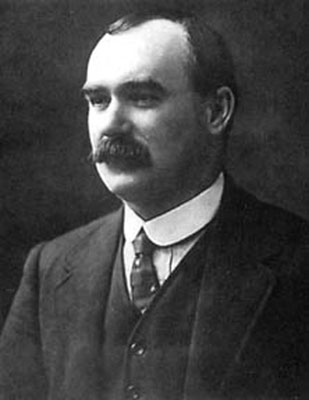Democrat July-August 2013 (Number 136)
Pamphlet review by Tony Grace
The National Question by C Desmond Greaves*
1848 capitalism to the EU

The statement which more than any other seems to define the theme of these two works by Desmond Greaves was that of James Connolly: "The principle of democracy must function nationally before it can function internationally."
At first sight, the differences between the ideas of socialism and nationalism would appear quite easy to understand. The author begins with quotes from the Communist Manifesto of 1848 which assert that the assault on sovereignty is a consequence of Capitalism and not caused by communism. The confusion in the minds of philosophers arose from the fact that the interests of the proletariat transcend all frontiers. This led to the notion that those interests were inimical to nationality and is best demonstrated through further extracts from the Manifesto:"Though not in substance, yet in form, the struggle with the bourgeoisie is at first a national struggle. The proletariat of each country must of course first settle matters with its own bourgeoisie." Differences and antagonisms will disappear through the advances of the proletariat but nations will remain.
The wide ranging section on colonialism discusses the various tactics necessary to obtain national independence. Even Marx had to rethink his theories about Ireland, Britain's oldest colony. He argued that the Irish proletariat would have to take up the struggle which had been abandoned by the Irish bourgeoisie. The English working class, corrupted by the super profits of 19th century imperial expansion could not be relied upon to overthrow the "Irish regime". Similarly, in Poland where the nobility had failed to gain liberty the Polish proletariat would take up the struggle. The campaign for national liberation could then be won by a socialist party.
It was in the many colonies of the imperial powers that the fight for national sovereignty had to take precedence over the long term goal of socialism. Even so, Lenin had proposed that not every single demand should be supported in every case especially where democratic rights might be compromised.
Tribute which is paid to James Connolly's intellectual and political contribution to the pursuit of national liberation is deftly juxtaposed to Joseph Stalin's all encompassing definition of what constitutes a nation as follows: "a historically evolved stable community of people formed on the basis of a common language, economic life and psychological make up in a community of culture."
The section on Neo-Colonialism, written at a time when socialist states could still support struggles for national liberation examines the way in which the Imperial powers continued to dominate the economic life of these former colonies as they do today.
The discussion paper on the Consultative Conference held in the Conway Hall on 30th November 1985 under the title of "National Sovereignty and the defence of the nation state" introduces the growing threat to democracy and national identity from the European Union. A brief history of Britain and Europe's imperial decline, the emergence of neo-colonialism and Churchill's failure to appreciate America's true intentions towards his beloved Empire is followed by a summary of the development of the EEC.
The quote from Norwegian writer, John Galtung, seems especially apposite: "Take five broken empires, add a sixth later, and make one big neo-colonial empire out of it all."
The piece concludes with comment on the decay of democracy due to the ravages of monopoly capitalism and the new EU superstate and also an examination of international propaganda by the mass media and other neo-liberal bodies. All in all this is an impressive work on this vexed question of nationality and nation-states commemorating the centenary of birth of Desmond Greaves and 75th anniversary of the Connolly Association.
______________
* C Desmond Greaves: The National Question: £2 each plus 50p postage Five copies at £1.60each post free
Ten copies £1.50 each post free -
Democrat Press, PO Box 46295, London W5 2UG